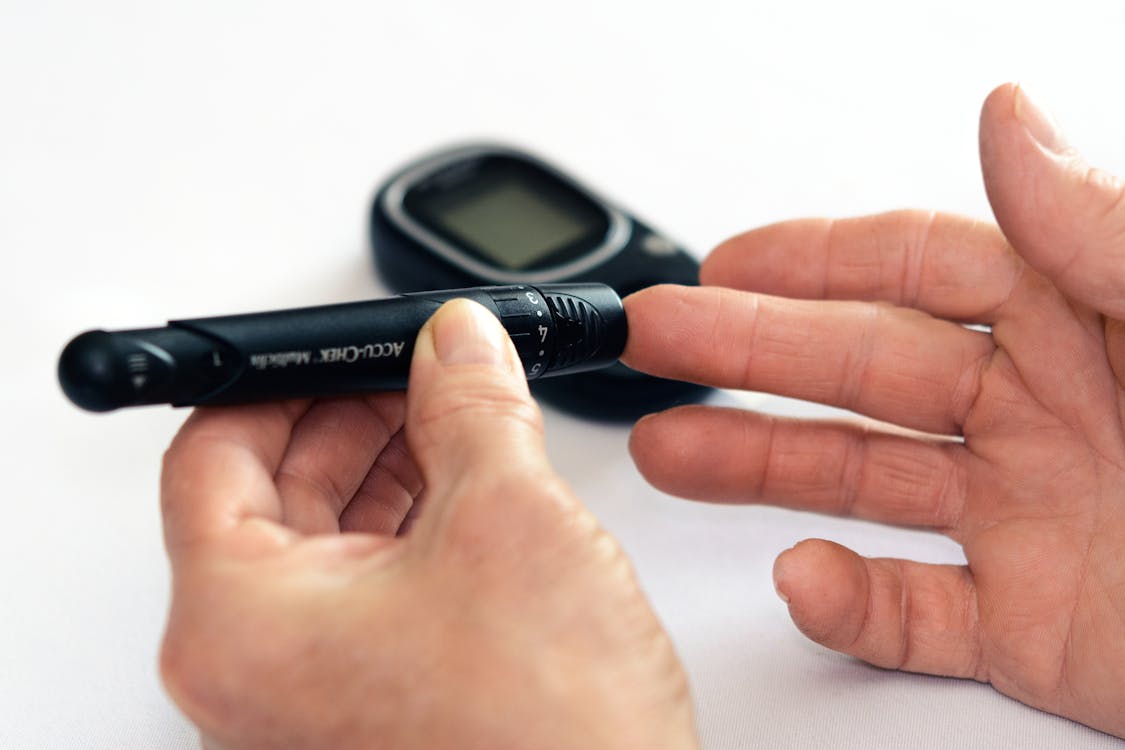Maintaining optimal blood pressure and blood sugar levels is crucial for overall health and well-being. High blood pressure (hypertension) and elevated blood sugar (hyperglycemia) are common health concerns that, if left unmanaged, can lead to serious health complications. In this article, we will explore various strategies to control and manage blood pressure and blood sugar, helping you lead a healthier and more fulfilling life.

Controlling Blood Pressure:-
Healthy Diet:-
A balanced diet is the cornerstone of managing blood pressure. Incorporate plenty of fruits and vegetables, whole grains, lean proteins, and low-fat dairy products into your meals. Reducing your sodium intake is crucial; aim to consume less than 2,300 milligrams of sodium per day. Be mindful of processed foods, as they often contain high levels of hidden sodium.
Limit Alcohol and Caffeine:-
Moderation is key when it comes to alcohol and caffeine consumption. Excessive alcohol intake can lead to high blood pressure, so limit your alcohol intake to a moderate level. Caffeine, found in coffee, tea, and some sodas, can temporarily raise blood pressure, so be mindful of your consumption, especially if you're sensitive to it.
Maintain a Healthy Weight:-
Carrying excess weight puts additional strain on the cardiovascular system, leading to higher blood pressure. Losing as little as 5-10% of your body weight can significantly reduce blood pressure. Combining a balanced diet with regular physical activity is an effective way to shed those extra pounds.
Regular Exercise:-
Physical activity is one of the most effective ways to control blood pressure. Aim for at least 150 minutes of moderate-intensity aerobic exercise or 75 minutes of vigorous-intensity exercise each week. Activities like brisk walking, swimming, or cycling can help keep your blood pressure in check.
Manage Stress:-
Chronic stress can contribute to high blood pressure. Incorporate stress-reduction techniques like meditation, deep breathing exercises, or yoga into your daily routine. These practices can help calm your mind and reduce your blood pressure.
Medications:-
In some cases, lifestyle changes may not be enough to control blood pressure. Your healthcare provider may prescribe medication to help regulate your blood pressure. It's essential to take these medications as directed and follow up with your healthcare provider regularly.
Controlling Blood Sugar:-
Balanced Diet:-
Managing blood sugar levels begins with a healthy diet. Focus on complex carbohydrates, such as whole grains and vegetables, which provide a slow release of glucose into the bloodstream. Limit your intake of refined sugars and processed foods, as they can cause rapid spikes in blood sugar.
Portion Control:-
Controlling portion sizes is essential in managing blood sugar. Be mindful of the amount of food you consume at each meal. Smaller, more frequent meals can help stabilize blood sugar levels throughout the day.
Monitor Carbohydrate Intake:-
Carbohydrates directly impact blood sugar. Keep track of your carbohydrate intake and distribute them evenly throughout the day. This can help prevent sudden spikes or crashes in blood sugar levels.
Choose the Right Fats:-
Opt for healthy fats, such as those found in avocados, nuts, and olive oil, while minimizing saturated and trans fats. A diet rich in healthy fats can improve insulin sensitivity and help regulate blood sugar.
Regular Exercise:-
Physical activity plays a crucial role in blood sugar management. Regular exercise helps your body use insulin more effectively, allowing it to regulate blood sugar levels. Aim for a combination of aerobic exercises and strength training to improve overall insulin sensitivity.
Medications and Insulin:-
For individuals with diabetes, medications and insulin therapy may be necessary. Work closely with your healthcare provider to determine the right treatment plan for your specific needs and follow their guidance meticulously.
Continuous Glucose Monitoring:-
Advancements in technology have made it easier to monitor blood sugar levels. Continuous glucose monitoring (CGM) systems can provide real-time data, helping you make immediate adjustments to your diet and medication if needed.
Conclusion:-
Effective management of blood pressure and blood sugar is essential for maintaining good health. By making lifestyle changes, adopting a balanced diet, engaging in regular physical activity, and working closely with healthcare professionals, you can take control of these vital aspects of your well-being. Remember that personalized care and a commitment to long-term health are key to successfully managing blood pressure and blood sugar. Always consult with your healthcare provider for tailored guidance and support on your journey to a healthier life.



You must be logged in to post a comment.